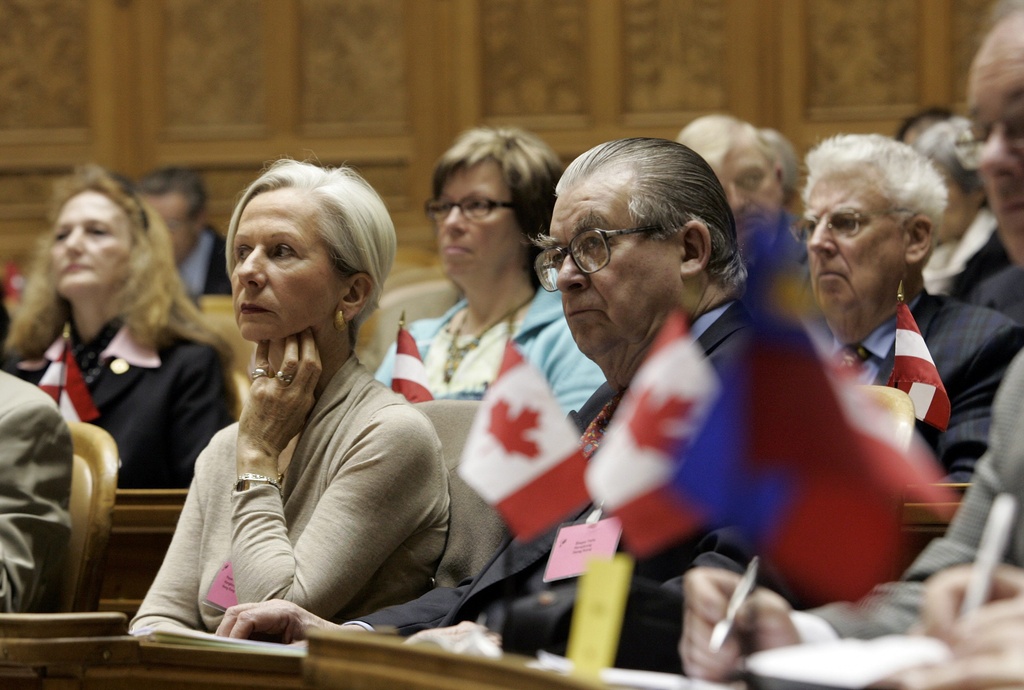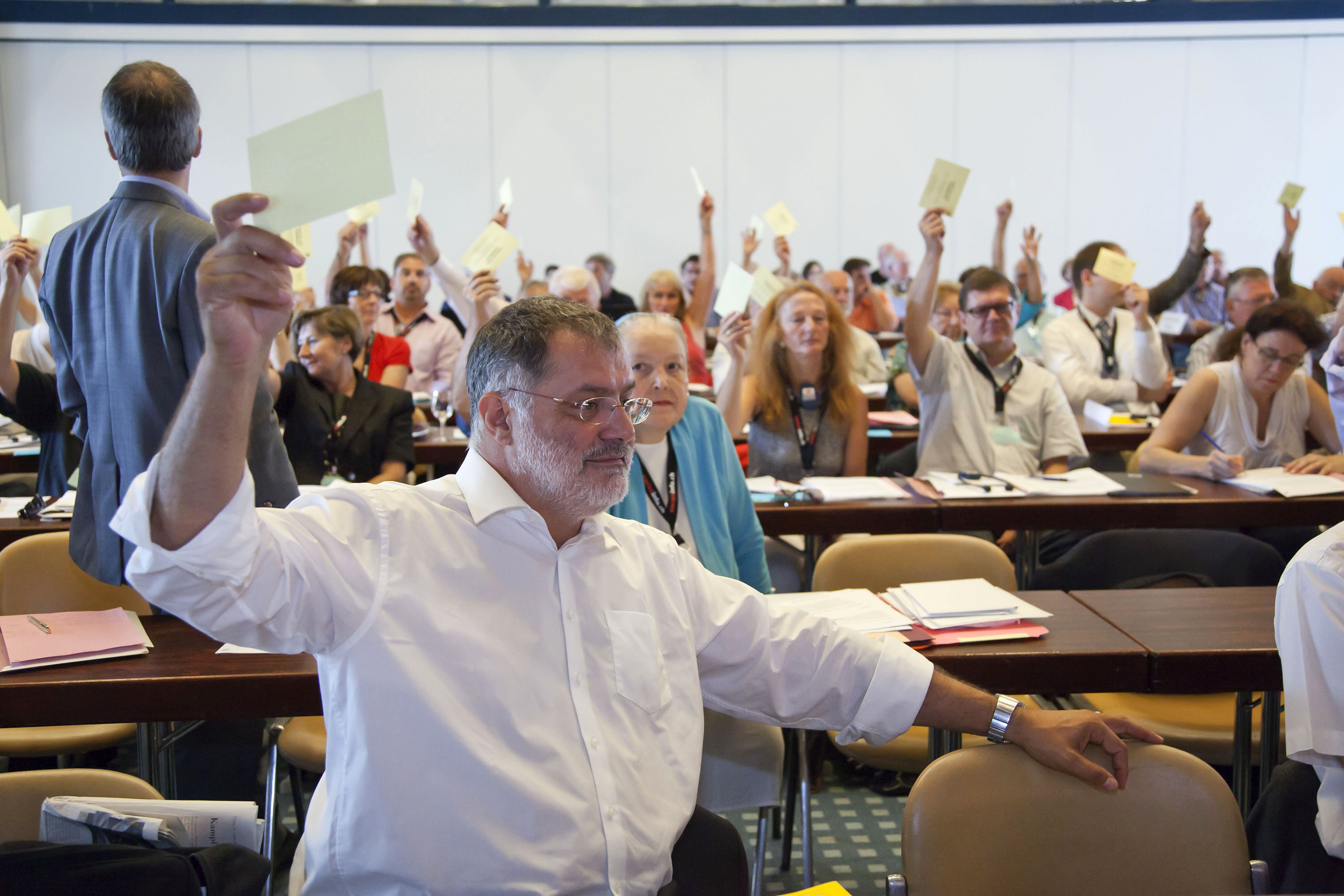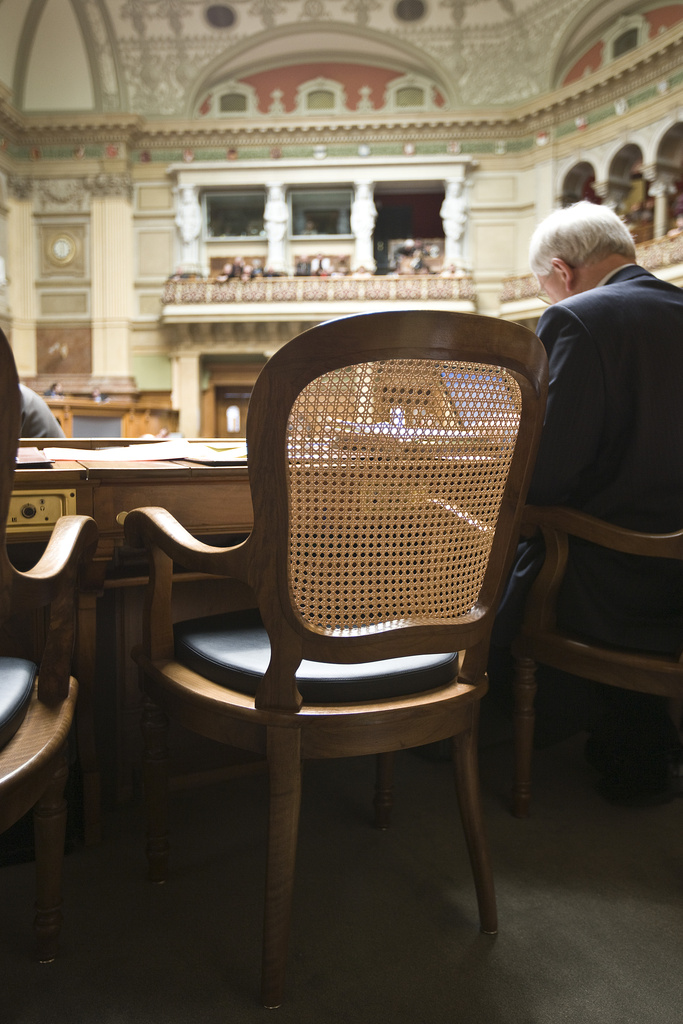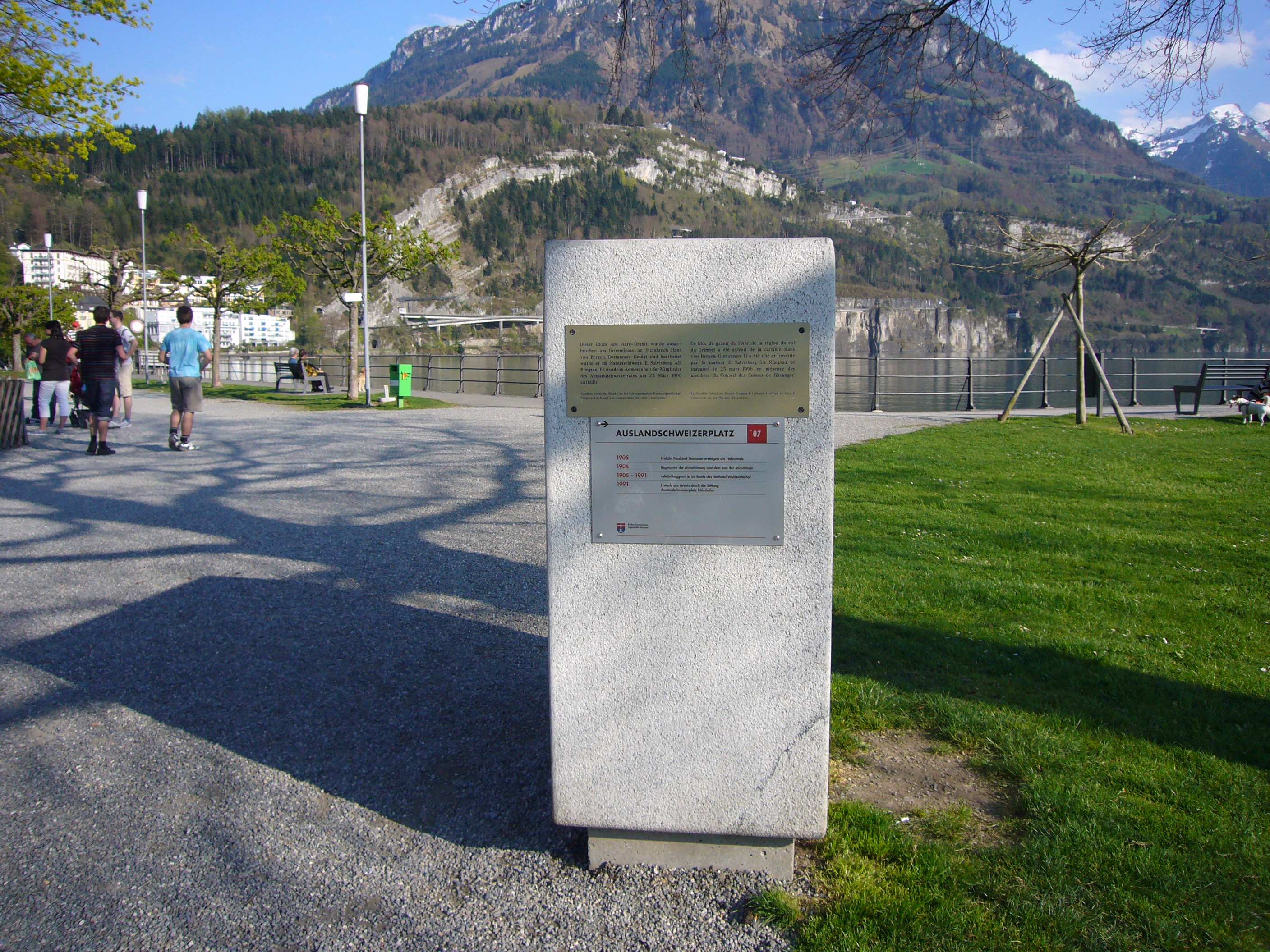Expats voice hopes and fears ahead of elections

The economic crisis and relations with the European Union are key issues for Swiss expatriates in the run-up to October’s parliamentary election.
swissinfo.ch found a broad political spectrum represented by delegates at the recent Congress of the Swiss Abroad in Lugano.
“When I left Switzerland in 1954 I did not have the right to vote. But since women’s suffrage was introduced in 1971 I have not missed a single ballot,” said Marianne Richardson from California.
She is one of many Swiss expatriates who follow the politics of her old home country from a distance. A total of 135,000 Swiss abroad have registered to take part in votes and elections.
Most of them send their ballot papers by post, but the Organisation of the Swiss Abroad hopes that it will be possible to vote online by 2015. Trials with e-voting have been underway for several years.
Peter Jordi, who has lived in New York since 1963, gets nostalgic about his “Heidiland”, but his main concern at the moment is the strength of the Swiss currency. “The Swiss economy risks facing its ruin if the National Bank does not intervene,” he said.
Gian Franco Definti agrees that the financial crisis has an impact on the lives of Swiss expats, but he sees relations between Switzerland and the EU as crucial.
“Switzerland’s foreign policy lacks confidence, especially in dealing with Italy,” complained the retired insurance expert who has been living in Milan for 50 years.
“We have to find ways of cooperating with the EU. There is no alternative to the bilateral treaties,” he added.
EU accords
Likewise, Ulrich Schwendimann from Warsaw considers the accords with Brussels paramount.
“As director of the chamber of commerce Switzerland–Poland I am very pleased with the accords. We are treated as equals. But I am not a supporter of Swiss membership of the EU.”
Two out of three Swiss expatriates live in EU member countries and the EU is Switzerland’s main trading partner.
Schwendimann is therefore concerned about an initiative by the rightwing Swiss People’s Party calling for an existing accord with the EU, which grants reciprocal access to the labour markets, to be re-negotiated.
Impact
“It is a bizarre policy shift by those who are most opposed to Brussels.” He fears their initiative will have serious repercussions because other bilateral agreements are directly linked to the labour treaty.
Daniel Tornare, son of parents who left Switzerland for France in the 1930s, agrees. “It is true that the crime rate in Geneva has reached record levels and there are not enough controls,” he said.
“But the Swiss who live in the EU enjoy great freedom. What would happen if we were to lose that?”
Security, however, is a concern for California resident Marianne Richardson and her family in the Joux valley on the Swiss border with France.
“My family told me they see car-loads of cross-border workers from France coming to Switzerland every day, which makes me feel uneasy.”
Moderation
For his part, Karl Frei, a Swiss expat in Mexico, indirectly condemns the People’s Party for its populist and hardline immigration policy.
“They know that their demands are unrealistic but they hope to win extra votes from people who fear immigrants.”
He points out that Switzerland has been too generous with people only pretending to be persecuted in their own country. He says the general public quickly jumps to conclusions and generalises over individual cases.
“Let’s not fall for extremist propaganda. Crime might be on the rise, but there is no need for a policy change. All we need to do is to apply the existing law,” he said.
Jean-Rodolphe Lüthi, a California resident for 32 years, says he wonders why the Swiss government does not crack down on abuses of the Swiss welfare system by foreigners and he can’t help noticing the graffiti everywhere in Switzerland. He says not every Swiss citizen is rich.
“I’m against discrimination, but we also need law and order.”
Confrontation
But opinions differ over the merits of a more confrontational system in Swiss politics.
“At least problems are being identified and tackled now. The traditional centre-right parties had too much power,“ said expatriate Definti from Milan.
Pierino Lardi, who has lived in Venezuela for eight years, says the social and political changes are part of direct democracy. They might be temporary and influenced by outside events.
He agrees that the People’s Party was clever enough to use the changes to support its populist policy, but he doubts whether the party will gain more votes in the October 23 elections.
Johann Dähler could not agree less. The founder of a Swiss People’s Party chapter in Costa Rica is convinced that his party is the best and will make further advances. It is the only party which knows what the ordinary people want, he claims.
Expectations
Definti for his part believes the rightwingers are poised to make slight gains, while the centre-left will at best hold their own. The centre-right Radicals and the Christian Democrats, however, are in for slight losses, he believes.
“I don’t think there will be major shifts,” he said. He is convinced that the two parliamentary chambers will continue to work well and has confidence in competent politicians.
Lardi from Venezuela and Schwendimann from Poland both hope that the centre-right will do better than in elections four years ago as the trend towards parties at both ends of the political spectrum does not seem irreversible.
“Fortunately the search for compromise and consensus has not stopped,” said Schwendimann.
A total of more than 80 expatriate candidates are standing in the October 23 parliamentary elections.
The rightwing Swiss People’s Party alone is fielding more than 50 candidates.
The centre-left Social Democrats have 14 candidates, six candidates are on the Green Party list, while the centre-right Christian Democrats, the Radicals and the Conservative Democrats have four, three and one candidate respectively.
No expatriates are currently sitting in parliament.
The Swiss abroad community was granted the right to vote by post in 1992.
More than 695,000 Swiss citizens live abroad, according to official data from December 2010.
Most of them are registered in neighbouring France, Germany and Italy.
There is also a significant Swiss community in North America.
About 135,000 Swiss expats have registered to take part in nationwide votes and in elections in Switzerland.
(Adapted from French by Urs Geiser)

In compliance with the JTI standards
More: SWI swissinfo.ch certified by the Journalism Trust Initiative




You can find an overview of ongoing debates with our journalists here. Please join us!
If you want to start a conversation about a topic raised in this article or want to report factual errors, email us at english@swissinfo.ch.